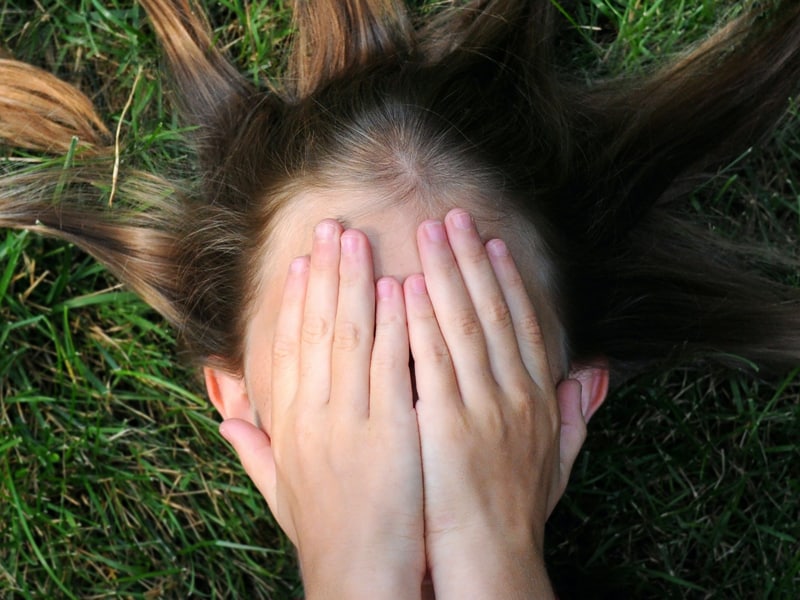It’s no surprise then that tweens on the brink of puberty have questions. Lots and lots of questions. And these aren’t little questions, either. Nope. Rather, our kids’ questions about puberty are deep. They cut right into the heart of who they are as people and who they want to be.
Is there a more confusing, angst-ridden, basically dreadful time in your life than puberty? I mean, even as I stare down the barrel of perimenopause, I still don’t think it can top it. How well I remember the turmoil of those puberty daze when you had no idea if you were up or down. Mostly you were down.
Nobody knows more about the questions our kids have than Michelle Mitchell. She’s the Aussie teenage expert who for 25 years has bravely gone straight to the coal face: into schools, talking to kids about puberty. Not a mission many of us would take on!
Making space for our kids to be vulnerable and open
“Our parents threw a book on the end of our bed and then ran for their life,” says Michelle. “And they might have said ‘any questions come and see me’, but we never did.”
She sees directly how difficult puberty is for kids to talk about at home. Sometimes for reasons a parent might not have even thought of.
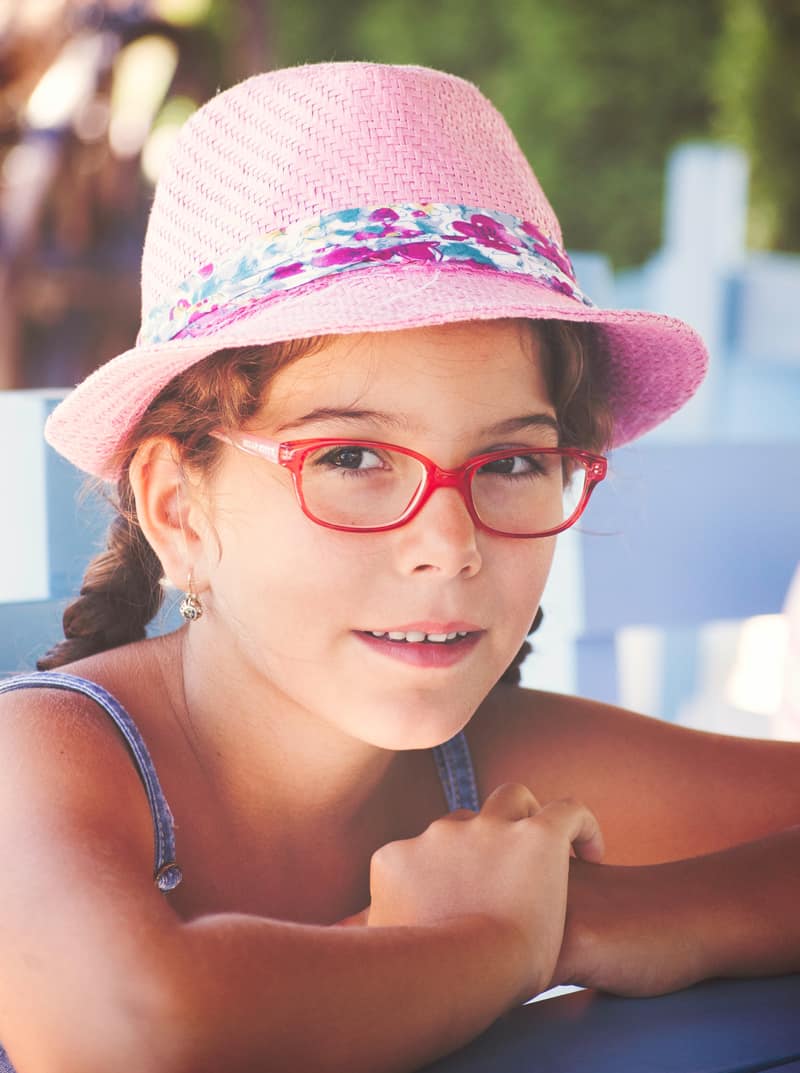
“Little kids will come up to me after my sessions, and they have such important questions that they are afraid to ask their parents about,” explains Michele. “And you can tell they are from good homes and their parents just adore them. But one thing kids say to me is ‘will my mum think I’m rude’.”
Bless our gorgeous little tweenies. They are still at an age where they actually care about what we think! And they don’t want us to think less of them for asking questions about bodies or sex or all of that overwhelming stuff.
“It’s too much to expect them to come to us if they’ve got questions,” says Michelle. “They are so deeply connected with us and wanting to please us at this age.
“I think we’ve got to realise the vulnerable heart that kids have when they ask questions. They’re normally not satisfied, they don’t rest, until they are satisfied with an answer. To direct our kids to safe people and safe places, we need to be mindful that we need to be accessible as their go-to. They should never be the ones that have to bring up tough stuff. That’s our job.”
Starting the conversation at home
Michelle has previously written the bestselling book Everyday Resilience, which is an excellent guide to tween friendship dramas. (If you don’t have a copy already, I highly recommend you grab one – so good!)
She’s also recently released an online puberty workshop that is aimed squarely at supporting parents through the necessary puberty talk. The online programme takes her popular books A Guy’s Guide to Puberty and A Girl’s Guide to Puberty further.
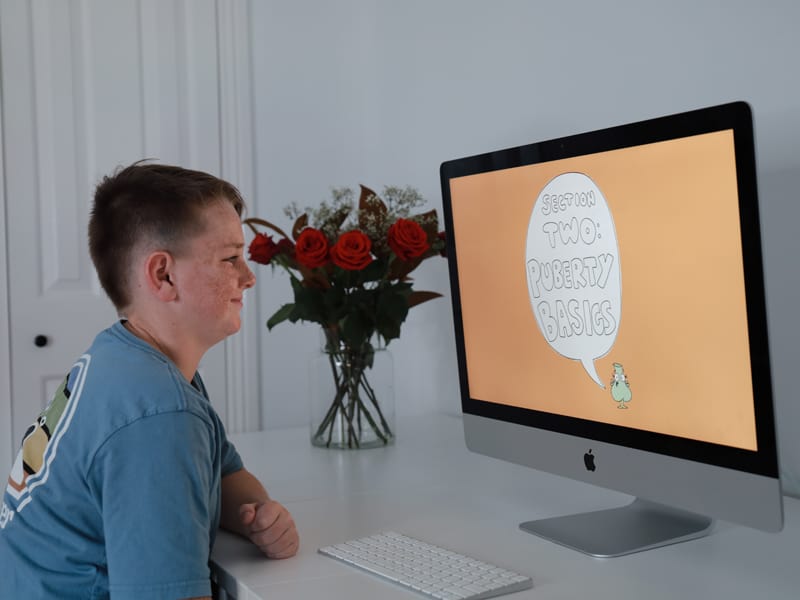
“The whole aim of this program is to do the “heavy lifting” for parents and educators,” says Michelle. “I want to hand you a program which gets you over the awkward as quickly as possible, ticks all the boxes, and opens the door for more specialised conversations.”
And these are conversations we absolutely, positively have to have with our tweens. We need to let them know that “we know”. They should feel comfortable enough to ask us all the questions about puberty they could possibly think up… and be confident that we can answer them.
“Kids will say to me, ‘I’m not sure how much my mum knows about this stuff’,” laughs Michelle. “They haven’t put together the fact that mums a woman, she gets her period.”
Does she ever! Again and again and again for DECADES, dear child.
“I wrote this as my gift to parents. My books have been called the PG of puberty education, so they are a beautiful introduction to parents who don’t want to over-expose their kids,” says Michelle. “They sit right in the puberty area, they don’t go into sexual relationships and all that. I just think one topic at a time is enough for the minute!”
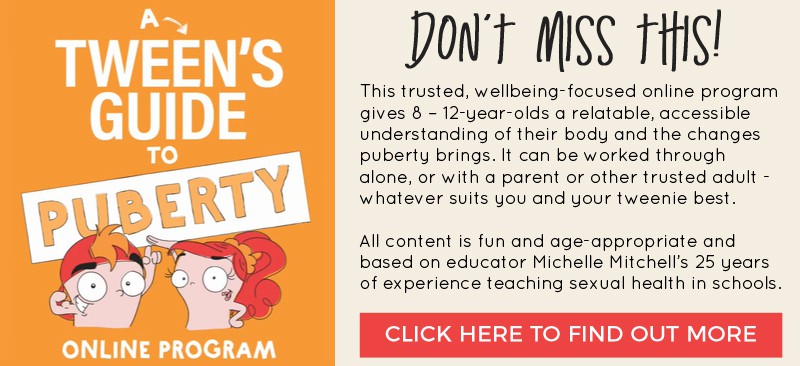
Michelle’s course really takes the awkward out of The Talk.
The five most asked questions about puberty
The fact is, if our kids are comfortable coming to us with their important questions, we are 100% going to be their safest, most accessible port for information. No one knows the exact needs of our children like we do. We can tailor our answers to suit their temperament, past experiences, future goals and exactly where they are at in life right now.
Michelle was kind enough to share the five most asked questions about puberty. These are the questions that come up again and again in her in-school workshops and questionnaires.
1. WHY do we have to go through puberty?
“The kids ask, ‘is there any way to avoid it?'” laughs Michelle. “The poor things are desperately hoping there’s a way to wash their hands of this whole puberty mess.”
Michelle gently lets them know that alas, there is no way out. But answering this question is a good way to remind kids that puberty happens to pretty much everyone. It’s a universal thing, no matter what country you live in, no matter what else is going on in your life. It might not happen at exactly the same age for everyone, but it will happen eventually.
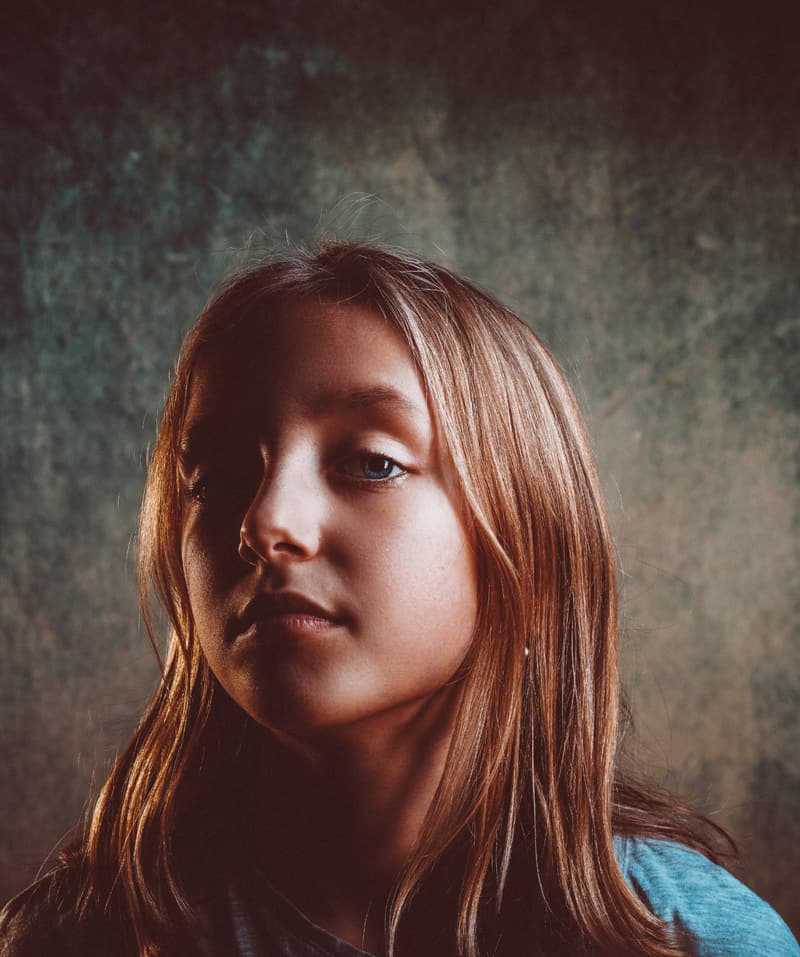
2. Do I have to have mood swings?
“Mood swings are the hardest,” notes Michelle. “They wanted to understand them and get help with them. They might have seen their older brothers and sisters go a bit mental and they just don’t want to be like that.”
That’s actually often what they are really asking here: will I turn into my big brother and sister? They don’t like the way their older siblings act and they don’t want to turn out like them.
“Kids are like, I’m happy to grow up, but I don’t want to have to be rude and sassy and hurt my parents’ feelings,” says Michelle. “They’re still very connected to their parents at this age. They haven’t had that push back where they’re quite happy to be rude and walk off. They’re not at that place yet.”
Michelle reminds us that tweens are also scared of their own mood swings. They hate feeling so out of control of their own emotions. “They’re quite frightened by the intensity of their emotions. Those nine-12 year olds can be very moody and apologetic all in the same hour. They can be ‘I’m so sorry’ and crying one minute and throwing something at their brother the next. They feel out of control and it’s that feeling of being out of control that is really frightening for them.”
3. What exactly will happen?
“Spell it out to me in a way that I can understand,” says Michelle. “Don’t leave anything out, don’t patronise me, don’t treat me like a child. Tell me exactly what is going to happen.”
Michelle says that this is where the ‘talking early and often’ about puberty is very important. Being open with kids from a very early age is key to settling them in when puberty starts to happen. It also has ongoing benefits as they continue to develop.
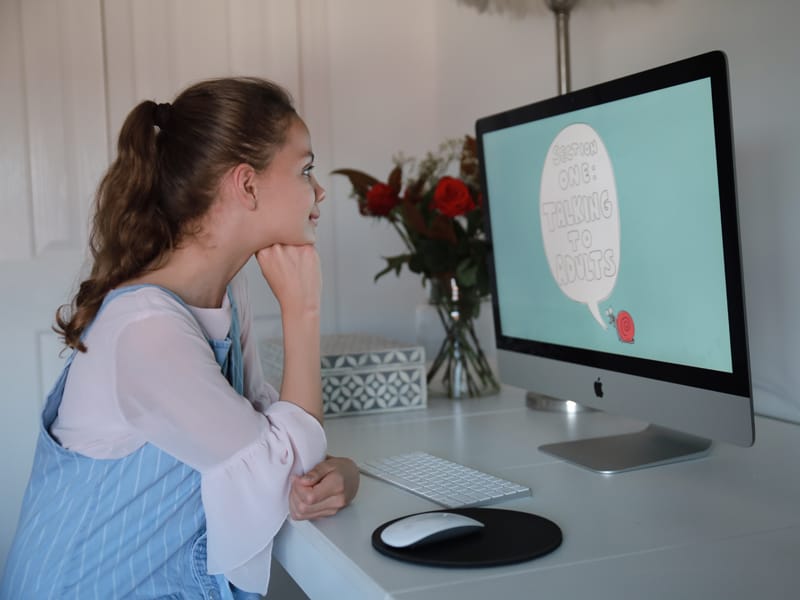
“They are more equipped to make wise choices during adolescence,” explains Michelle. “So, when they’ve had comprehensive education around their body and sexual health, it arms them to make wiser choices. Rather than empowers them with too much information. It’s not a matter of over-exposing them – that’s a bit of a myth. The challenge is breaking it down to a level that they can really understand and digest.”
The second way talking early and often about puberty benefits kids is that they are likely to be more adaptive, confident and resilient. Especially if the information they are receiving about puberty comes from their parents.
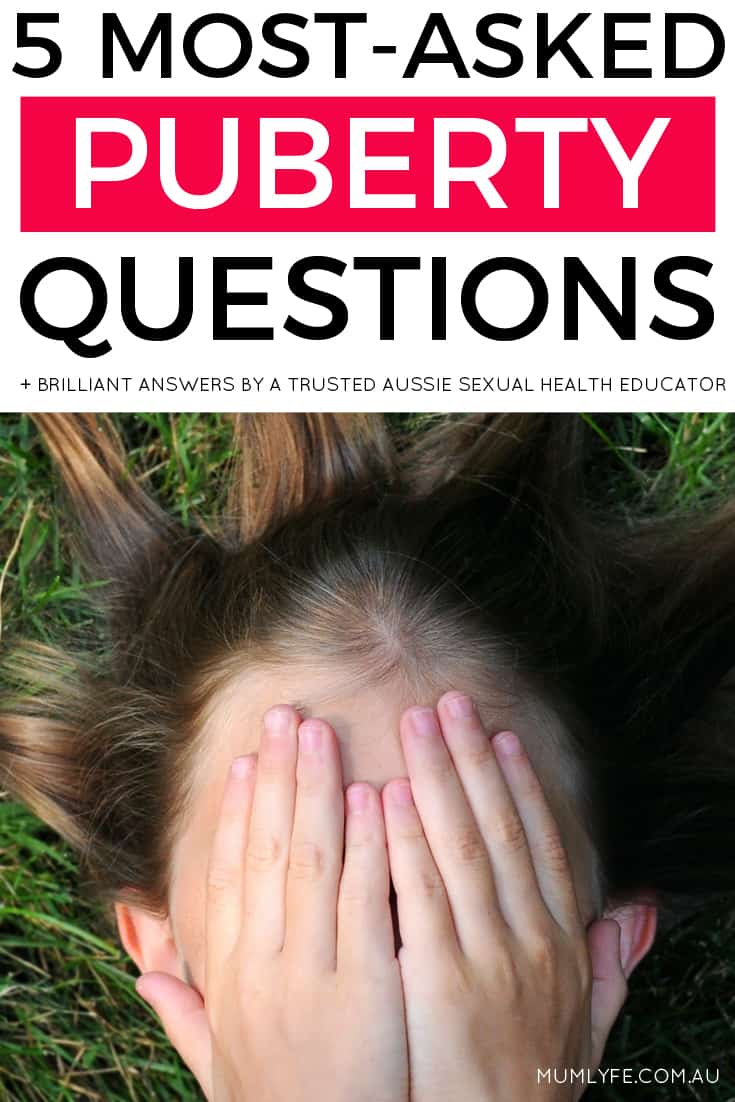
This is especially true because when parents rely on the schools’ programme alone to teach their kids about puberty, there’s a lot of noise to get through. They don’t take it in as fully when they are surrounded by their peers and it’s their teacher telling them about body stuff (how embarrassing, etc). Some kids aren’t even necessarily ready for ‘the talk’ when it winds its way onto the classroom curriculum.
The beauty of bringing the puberty discussion into the home is that you can present it when your child is completely ready for it. Or if it’s a program like Michelle’s online program, the kids can do it in their own room, in their own time, supported by us parents when they need us.
“They might come home from a day at school where they’ve heard something they didn’t quite understand. They now have a safe resource that they can go to look up the answer without having to work up the courage to ask Mum or Dad.
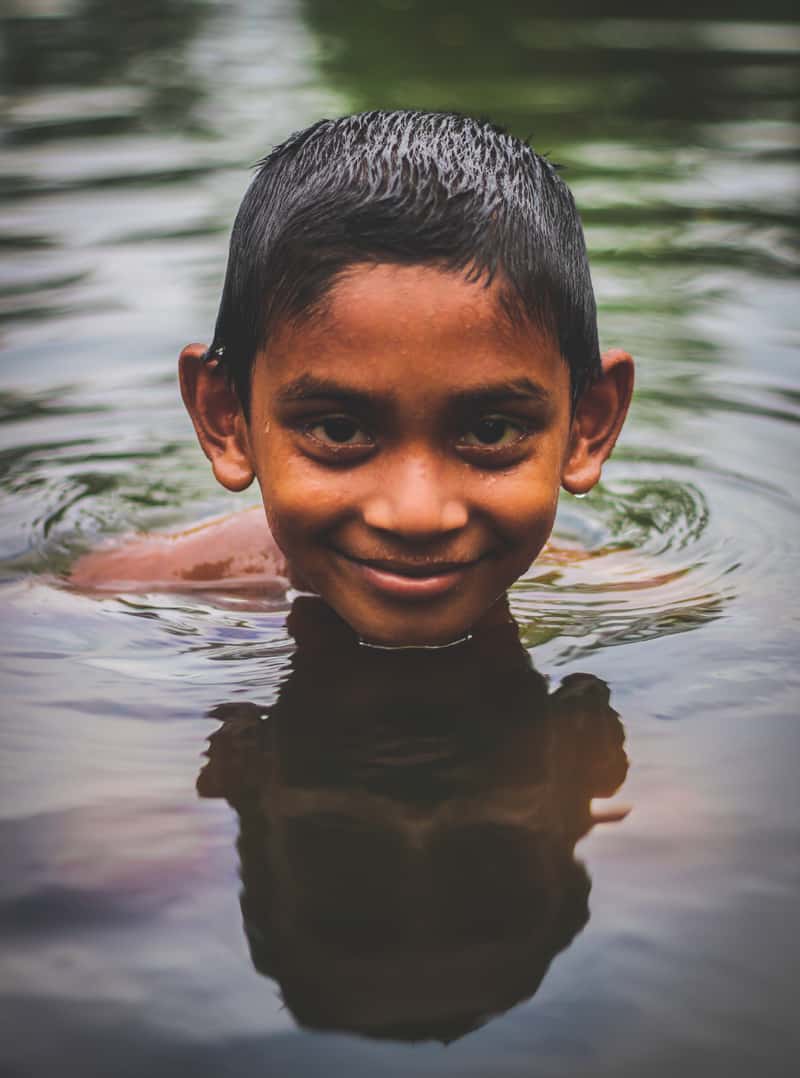
4. Does it hurt?
“This is a really big one,” says Michelle. “It’s that fear of the unknown for them.” This is one of the questions about puberty that comes up in just about every workshop Michelle does.
It’s a question that speaks to directly into the heart of how vulnerable our kids are at this age. We need to remember that their only reference point for what is happening to them is what’s happened so far in their childhoods. Periods must seem very daunting indeed.
“Blood is a typical one. They’ve only ever known the type of blood that comes out when they hurt themselves,” explains Michelle. “Their knee when they skin it, for example. It hurts a lot! You need to really explain the difference so they don’t hinge it on what they already know. They will amplify that in a way that frightens them.”
5. Will I be different than my friends?
Friendships are so hyper-critical at this age and one of the toughest aspects of puberty is that it doesn’t happen at exactly the same time for everyone. Kids are genuinely terrified that going through puberty will make them so different to a friend that hasn’t experienced it yet that they might not be friends anymore.
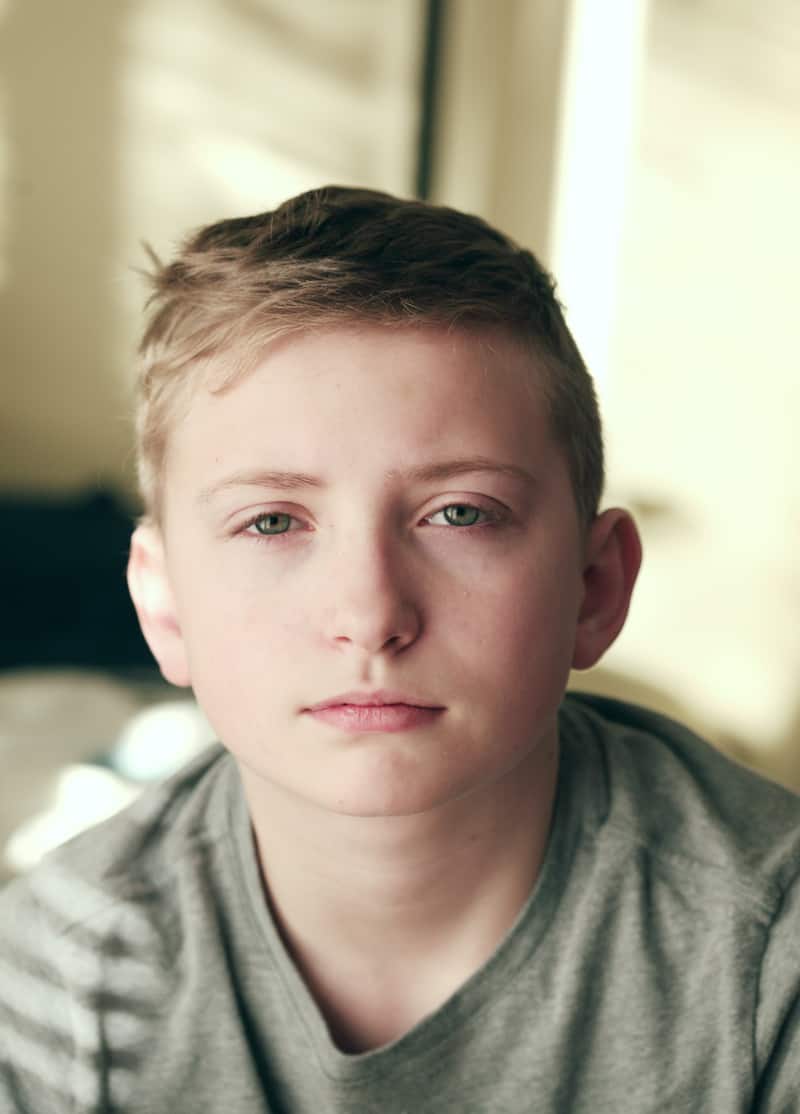
For this question, it’s helpful to talk about what makes a person themselves. It’s not just their bodies, it’s an essence within that can’t be changed by hormones shifting. Modelling being an authentic person can help children understand what we mean by this.
“It’s so important to show kids that we are authentic. That you’re not going to just change to be their friend or whatever is popular at the time,” says Michelle. This is often the way kids of this age experience friendships, which can turn from good to difficult overnight. Even over recess.
“It’s modelling an authenticity day in day out that they don’t see anywhere else,” reminds Michelle. “Being your daggy self with your uncool jokes. We want our kids to see that we’re fully ourselves and we’re okay with that. They love us regardless. Which is exactly what we want for their relationships with others, too.”
You can find out more about Michelle’s online puberty program here. Note that links to Michelle’s online program and books in this article are affiliate links. You can find out more about how they work here.
Feature image by Ben Hershey; images of kids at computer, courtesy of Michelle Mitchell; girl in hat by Ovidiu Creanga; defiant girl by 🇸🇮 Janko Ferlič; boy in water by Tanjir Ahmed Chowdhury; boy close up by Sharon McCutcheon

